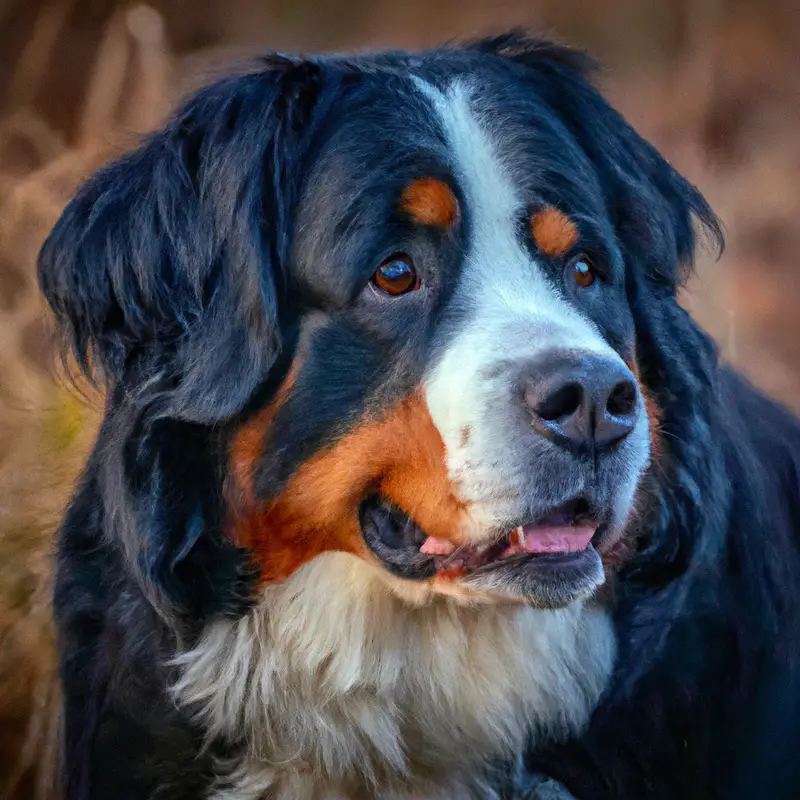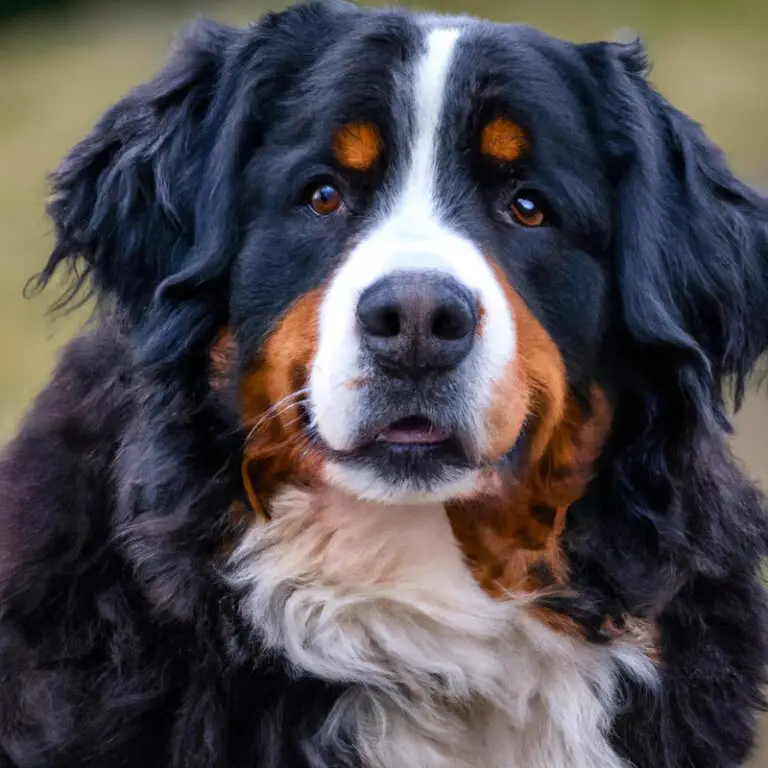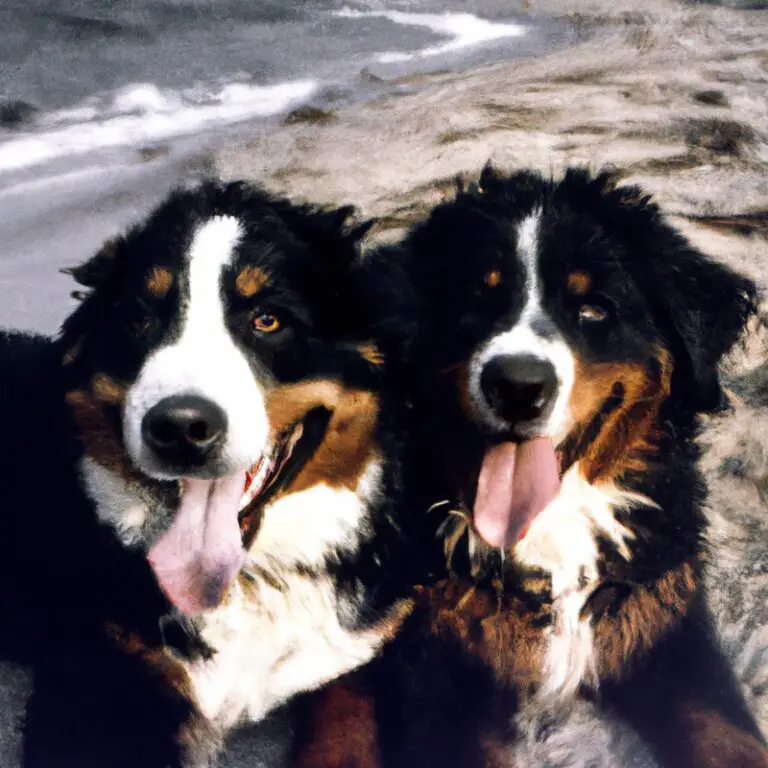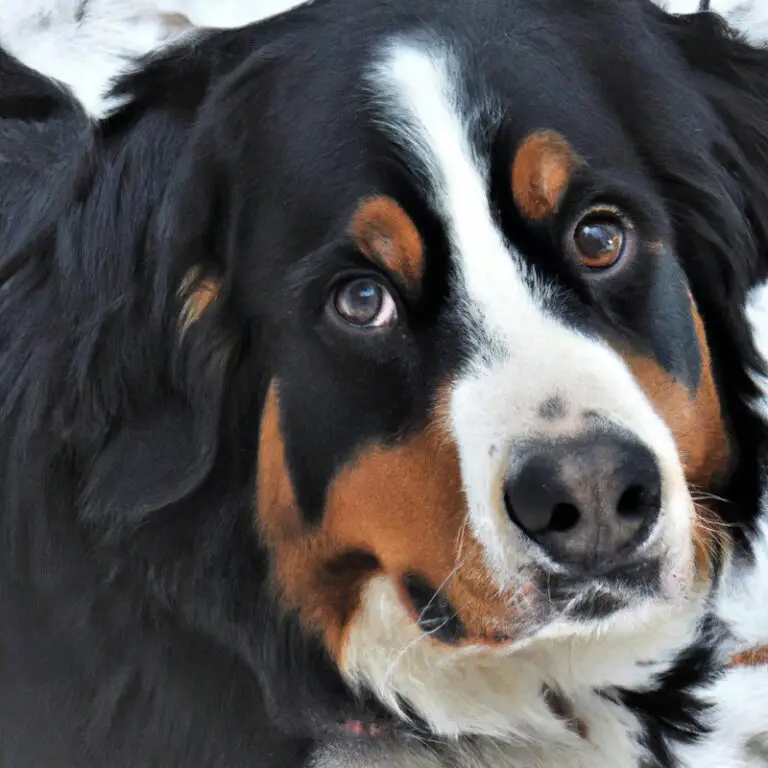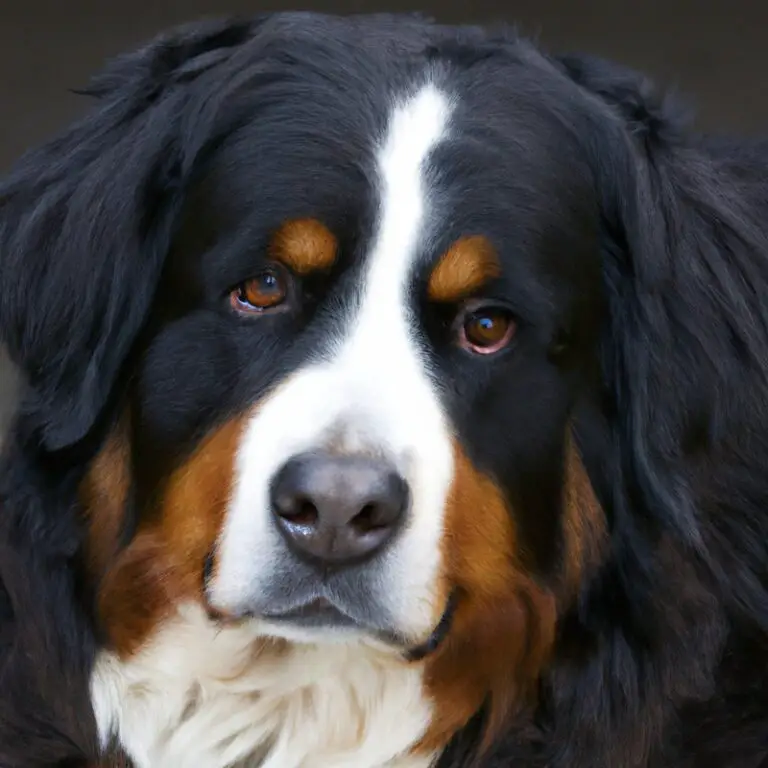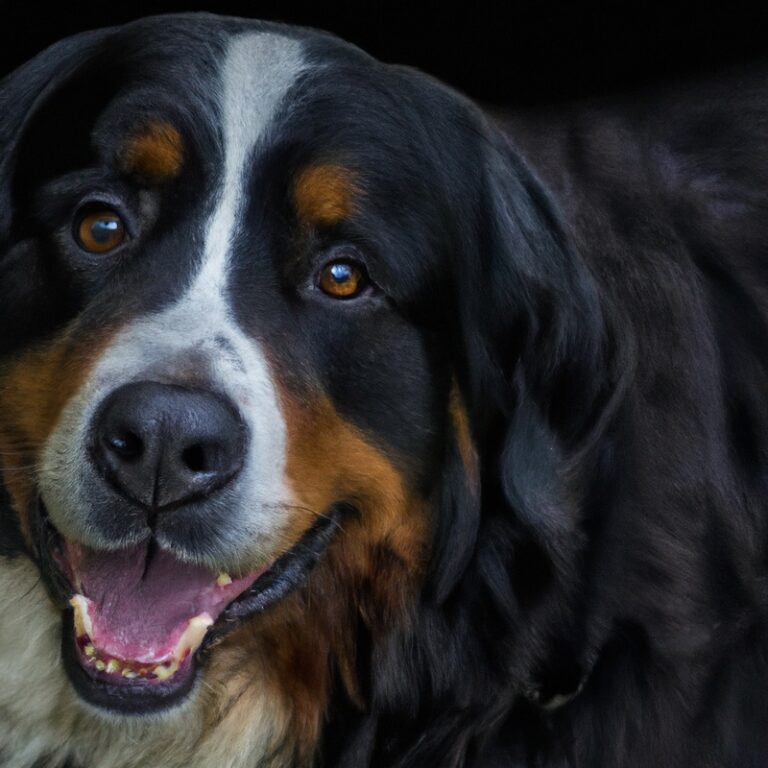What Are The Potential Challenges Of Owning a Bernese Mountain Dog?
Key Takeaways:
- Bernese Mountain Dogs have a high risk of developing certain health issues.
- These dogs require a significant amount of grooming and maintenance.
- Bernese Mountain Dogs need plenty of exercise and mental stimulation.
- They thrive in a family environment and may struggle with extended periods of isolation.
Are you considering welcoming a Bernese Mountain Dog into your home?
These majestic and gentle giants bring so much love and joy, but it’s important to understand the potential challenges that come with owning this beautiful breed.
From their size and exercise needs to their health issues and socialization requirements, there are several factors to consider.
As a dog lover and experienced owner of Bernese Mountain Dogs, I am here to guide you through the physical, health, social, time, and practical challenges that you may face.
So, let’s dive in and explore all the ins and outs of owning these wonderful creatures!
| Challenges | Solutions |
| Large Size | Provide ample space and outdoor exercise |
| Shedding | Regular grooming and brushing |
| Health Issues | Regular vet check-ups and preventative care |
| Short Lifespan | Enjoy the time you have and make the most of it |
| Early Training and Socialization | Start training and socializing from a young age |
Physical challenges of owning a Bernese Mountain Dog
Size and space requirements
Size and space requirements for a Bernese Mountain Dog can be significant.
These gentle giants can reach heights of up to 27 inches and weigh between 70 and 115 pounds.
Consequently, they need ample space to move around comfortably.
A secure fenced yard is essential to provide them with the exercise they need.
Inside the house, they appreciate a designated area where they can relax and stretch out.
Additionally, make sure there is enough room for their beds, food bowls, and toys without feeling cramped.
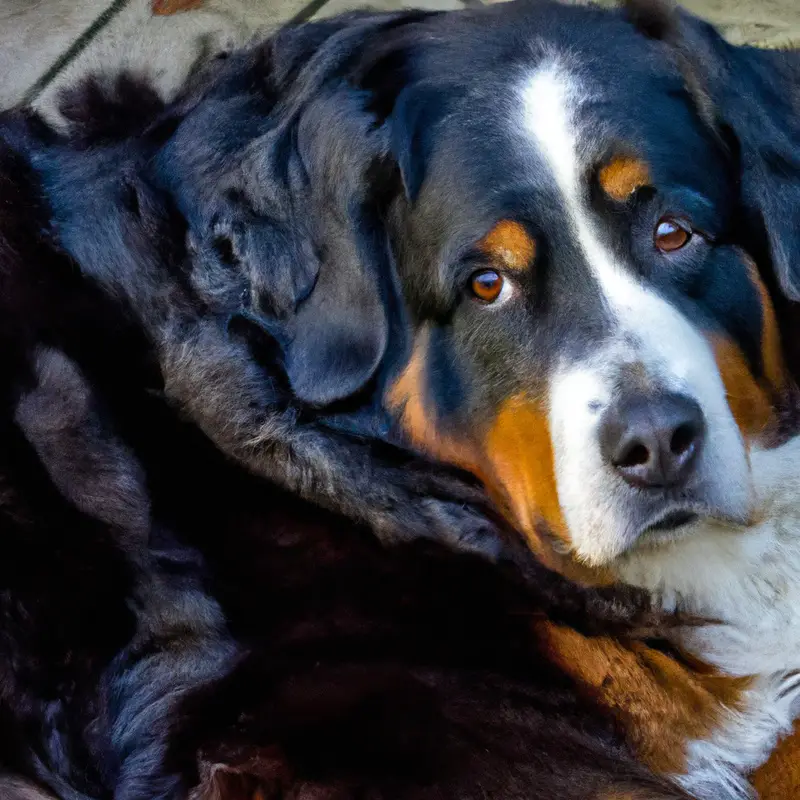
Exercise needs and energy levels
When it comes to exercise needs and energy levels, owning a Bernese Mountain Dog requires a commitment to regular exercise. These dogs have a moderate energy level and benefit from daily mental and physical stimulation.
They enjoy activities like long walks, hikes, and interactive play sessions.
Engaging in regular exercise helps to keep them physically fit, mentally stimulated, and prevents them from becoming bored or frustrated. Ensuring that they have enough exercise will help them maintain a balanced and happy lifestyle.
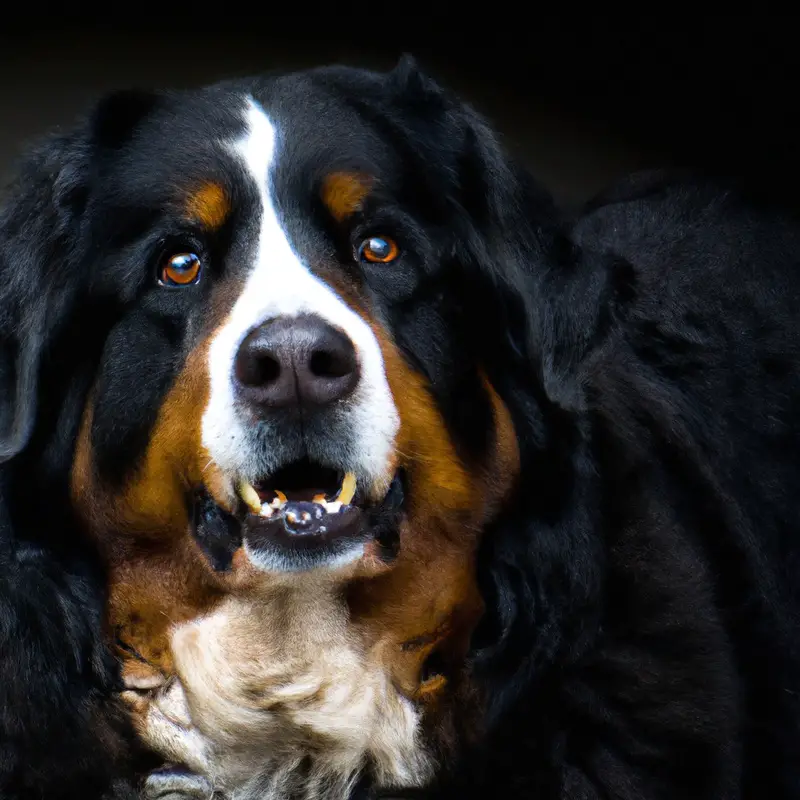
Grooming and coat maintenance
Grooming and coat maintenance for a Bernese Mountain Dog is quite important. Their long and thick double coat requires regular brushing to prevent matting and keep the fur healthy.
You should aim to brush their coat at least 2-3 times a week.
Pay attention to areas where their fur tends to tangle, like behind the ears and under the legs. Additionally, they shed quite a bit, so be prepared for regular vacuuming.
It’s also recommended to schedule professional grooming sessions a few times a year to help maintain their coat’s condition.
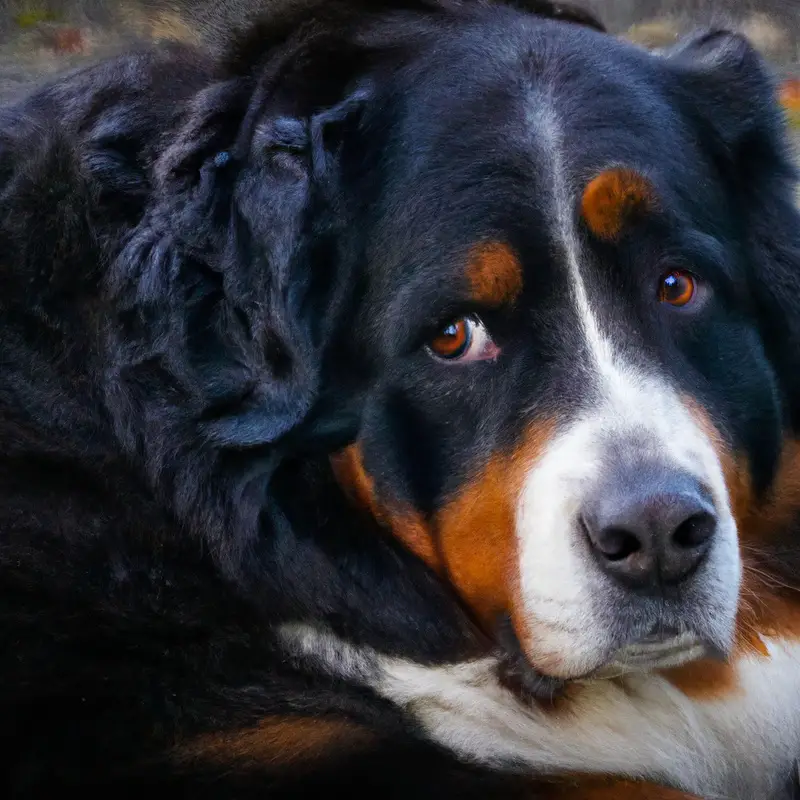
Health challenges of owning a Bernese Mountain Dog
Common health issues in Bernese Mountain Dogs
Bernese Mountain Dogs are prone to several common health issues. These include hip and elbow dysplasia, which can cause pain and difficulty walking.
They are also susceptible to certain types of cancer, such as histiocytic sarcoma.
Another health concern is bloat, a condition where the stomach twists and can be life-threatening. Additionally, Bernese Mountain Dogs may experience issues with their eyes, such as cataracts and progressive retinal atrophy.
It’s important to be aware of these potential health issues and to regularly monitor your Bernese Mountain Dog’s health to ensure they receive the necessary care and treatment.
Importance of regular veterinary care
Regular veterinary care is essential for the well-being of your Bernese Mountain Dog.
It helps to prevent and detect any health issues early on, ensuring prompt treatment.
Through regular check-ups, vaccinations, and examinations, your vet can monitor your dog’s overall health and address any concerns.
They can also provide guidance on nutrition, exercise, and preventive measures to keep your dog healthy.
Remember to schedule regular visits to the vet to ensure the long-term health and happiness of your Bernese Mountain Dog.
Potential medical costs and insurance options
Potential medical costs for owning a Bernese Mountain Dog can be significant.
These dogs are prone to certain health issues, such as hip dysplasia, cancer, and bloat.
Treatment for these conditions can be expensive and may require ongoing care.
It is important to consider the potential financial impact of these medical costs before getting a Bernese Mountain Dog.
One way to mitigate these costs is by investing in pet insurance.
Pet insurance can help cover the cost of veterinary care, medication, and even emergency surgeries.
Research different insurance options to find the best coverage for your Bernese Mountain Dog’s needs.
Social and behavioral challenges of owning a Bernese Mountain Dog
Separation anxiety and attachment
Separation anxiety can be a challenge for Bernese Mountain Dogs. They form strong attachments to their owners and can become anxious when left alone.
It is important to gradually train them to be comfortable with alone time.
Providing mental and physical stimulation before leaving can help alleviate anxiety. Crate training and leaving them with a special toy or treat can also be beneficial.
Consistency and patience are key in helping your Bernese Mountain Dog overcome separation anxiety.
Socialization needs and potential aggression
Socialization needs are essential for Bernese Mountain Dogs.
They thrive in a social environment, so it’s important to expose them to different people, animals, and environments from a young age.
This helps prevent potential aggression issues later on.
Regular positive experiences during socialization can help these dogs become well-rounded and friendly companions.
However, it’s crucial to monitor their interactions and intervene if any signs of aggression arise.
Proper socialization is key to maintaining a balanced and happy Bernese Mountain Dog.
Training and obedience requirements
Training and obedience are essential for owning a Bernese Mountain Dog.
These dogs are intelligent and eager to please, making them relatively easy to train.
Consistency and positive reinforcement techniques work best.
Start training early and be patient, as Bernese Mountain Dogs can be slow to mature.
Focus on commands like sit, stay, and come, and introduce socialization to help them interact well with other dogs and people.
Regular mental and physical exercise is also important to keep them happy and well-behaved.
Remember, training is an ongoing process, but with patience and consistency, you’ll have a well-trained and obedient companion.
Time and commitment challenges of owning a Bernese Mountain Dog
Time required for exercise and mental stimulation
Owning a Bernese Mountain Dog requires a significant investment of time for exercise and mental stimulation. These dogs are active and enjoy being outdoors, so daily exercise is essential.
You should aim for at least 30-60 minutes of physical activity, such as walks, runs, or playing fetch.
Additionally, mental stimulation is crucial for their well-being. Engage in activities like puzzle toys, obedience training, and interactive games to keep their intelligent minds busy.
Dedicate time each day to ensure your Bernese Mountain Dog is happy and fulfilled.
Attention and companionship needs
Owning a Bernese Mountain Dog requires giving them attention and companionship.
These dogs are social creatures and thrive on human interaction.
They want to be part of your family and enjoy spending time with you.
This means carving out quality time in your day to play, cuddle, and just be together.
They are not meant to be left alone for long periods as it can lead to loneliness and behavioral issues.
So, be prepared to give your Bernese Mountain Dog the love and attention they need to be happy and balanced.
Finding reliable pet care arrangements
Finding reliable pet care arrangements can be a challenge when owning a Bernese Mountain Dog.
Here are a few options to consider:
- Boarding facilities: Look for reputable boarding facilities that specialize in caring for larger breeds like Bernese Mountain Dogs. Make sure to visit the facilities beforehand to assess the quality of care provided.
- Trusted friends or family: If you have friends or family members who are willing and able to take care of your Bernese Mountain Dog, this can be a great option. Ensure they have experience with the breed and understand their specific needs.
- Professional pet sitters: Hiring a professional pet sitter who is experienced with Bernese Mountain Dogs can provide peace of mind. They can come to your home to care for your dog, ensuring they receive attention, exercise, and proper care.
- Doggy daycare: Consider enrolling your Bernese Mountain Dog in a doggy daycare program. This allows them to socialize with other dogs while being supervised by trained professionals.
Remember to thoroughly research and evaluate any potential pet care arrangements to ensure the safety and well-being of your Bernese Mountain Dog while you are away.
Practical challenges of owning a Bernese Mountain Dog
Expenses associated with owning a large breed dog
Owning a large breed dog, like a Bernese Mountain Dog, can be an incredibly rewarding experience.
However, it’s important to consider the expenses that come with it.
Here are some key costs to keep in mind:
- Food: Large breed dogs require more food than smaller breeds, so be prepared for higher food expenses.
- Veterinary care: Regular check-ups, vaccinations, and potential health issues can add up. Consider pet insurance to help manage these costs.
- Grooming: Large breeds often require professional grooming, which can be expensive. Regular brushing and maintenance can help reduce these costs.
- Training and socialization: Proper training is essential for large dogs, and enrolling in obedience classes or hiring a trainer may be necessary. These costs should be factored into your budget.
- Supplies: Larger dogs need bigger beds, crates, and toys. Additionally, investing in sturdy leashes, collars, and harnesses is important for their safety.
Remember, while owning a large breed dog can be costly, the love and companionship they provide is priceless.
Planning ahead and budgeting for these expenses will help you provide the best care for your furry friend.
Travel limitations and accommodation difficulties
Traveling with a Bernese Mountain Dog can be challenging due to their large size and specific needs.
Many airlines have restrictions on the size and breed of dogs that can accompany passengers, making it difficult to find suitable transportation.
Additionally, finding accommodations that allow large dogs can be a struggle.
Many hotels and vacation rentals have weight limits or breed restrictions, limiting your options.
It’s important to plan and research in advance to ensure a smooth travel experience with your Bernese Mountain Dog.
Dealing with shedding and drooling
Dealing with shedding and drooling can be a potential challenge when owning a Bernese Mountain Dog. Here are some tips to help you manage these issues:
- Regular grooming is essential to control shedding. Brushing your Berner’s coat at least once or twice a week will help remove loose hair and minimize shedding in the house.
- Provide your dog with a balanced diet and ensure they stay hydrated. This can help reduce excessive drooling, as some dogs drool more when they are thirsty or when their diet is not suitable.
- Keep towels or drool rags handy, especially during meal times or after your dog drinks water. Wiping their mouth and chin can help prevent drool from spreading around the house.
- Consider using specialized products, like drool bibs or bandanas, that can help absorb and contain excess drool, especially when your Berner is prone to drooling during excitement or when they are hot.
- Regular dental care is important to maintain your dog’s oral health, which can also reduce excessive drooling caused by dental issues. Brush your dog’s teeth regularly and schedule regular check-ups with your veterinarian.
Remember, shedding and drooling are natural aspects of owning a Bernese Mountain Dog, so it’s important to be prepared and incorporate these strategies into your routine to manage them effectively.
Frequently Asked Questions about owning a Bernese Mountain Dog
How long do Bernese Mountain Dogs live?
Bernese Mountain Dogs typically live for about 6 to 8 years. However, some may live longer with proper care and a healthy lifestyle.
It’s important to note that larger breeds like Bernese Mountain Dogs tend to have shorter lifespans compared to smaller breeds.
Regular exercise, a balanced diet, regular veterinary check-ups, and providing a comfortable living environment can all contribute to the overall health and longevity of your Bernese Mountain Dog.
Are Bernese Mountain Dogs good with children and other pets?
Bernese Mountain Dogs are known for their gentle and friendly nature, making them great companions for children.
They are patient and tolerant, making them unlikely to snap or show aggression towards kids.
However, it is still important to supervise interactions between young children and dogs to ensure safety.
When it comes to other pets, Bernese Mountain Dogs generally get along well with them, especially if they are socialized from a young age.
Proper training and socialization are key to ensuring harmonious relationships between your Bernese Mountain Dog and other pets in the household.
Can Bernese Mountain Dogs adapt to apartment living?
Bernese Mountain Dogs can adapt to apartment living, but it may not be the ideal environment for them.
These dogs are large and active, so they require plenty of space to exercise and play.
Living in an apartment may make it challenging for them to get the exercise they need.
Additionally, Bernese Mountain Dogs have thick coats and are more comfortable in cooler temperatures, which can be difficult to maintain in a small living space.
Nevertheless, with regular exercise, mental stimulation, and proper care, it is possible for Bernese Mountain Dogs to thrive in an apartment setting.
Final Verdict
Owning a Bernese Mountain Dog can present various challenges that potential owners should be aware of. The physical challenges include the size and space requirements, as well as the exercise needs and grooming demands.
Health challenges may arise due to common health issues, emphasizing the importance of regular veterinary care and potential medical costs.
Social and behavioral challenges can include separation anxiety, socialization needs, and training requirements. Time and commitment challenges arise from the need for exercise, attention, and companionship.
Practical challenges involve expenses, travel limitations, and dealing with shedding and drooling.
Overall, owning a Bernese Mountain Dog requires dedication, resources, and a willingness to address these challenges.

